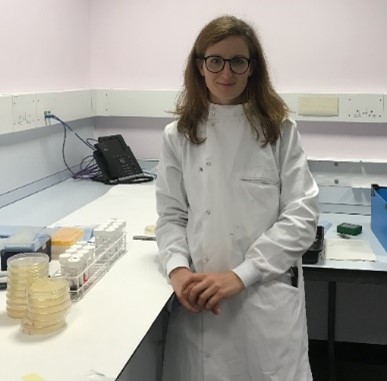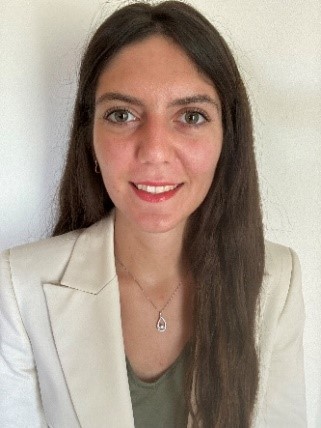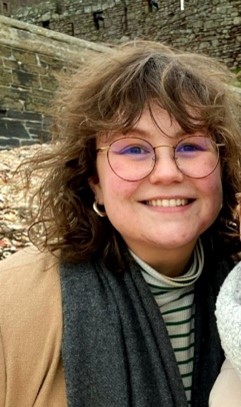8 February 2024
HSE is proud to support the United Nations and other
organisations worldwide marking International Day of Women and
Girls in Science, reminding everyone that women and girls play a
critical role in science and technology communities.
HSE employs women in a range of scientific disciplines. Here's
what working in science means to three of them.
Iwona Rosa graduated in Poland with a master's degree in Food
Technology and Nutrient Sciences. Since 2015, she has worked as a
Bioscientist in HSE's Science Division at its Science and Research
Centre in Buxton and has been involved in several projects looking
at workers' exposure to airborne microorganisms.

Iwona Rosa - Bioscientist at HSE
Recently, on behalf of the Animal and Plant Health Agency, she
been evaluating a method for evaluating disinfectants against
Mycobacterium bovis, a hazard group 3 pathogen that is endemic in
the UK and causes significant disease in cattle resulting in
financial hardship for the agricultural industry.
In an unusual project done for Thales Alenia Space, she was
responsible for the analysis of samples that helped to ensure that
the Perseverance Rover used to explore Mars would not contaminate
the planet with microorganisms from Earth.
Since graduating, Iwona has not stopped developing and
continuously looks for areas where she can improve and broaden her
knowledge to become a more experienced scientist.
Iwona says:
"I am very happy to be a part of the growing group of
women involved in science. Research is unpredictable, even planning
it well is no guarantee of a smooth process because sometimes
unknown obstacles appear that need to be solved before you can move
forward. Although this can be challenging, overcoming these
barriers and achieving the intended goal or finding the answer to a
troubling question, brings great satisfaction. I am pleased to be
able to help protect the health and safety of the community through
the results of my work."
Sofia Sangiorgi has a master's degree in Environmental Science
and Management and joined the Ecotoxicology team in HSE's Chemicals
Regulation Division in 2021. Her job involves the ecotoxicological
assessment of pesticide and biocide products by evaluating toxicity
studies on non-target organisms and carrying out environmental risk
assessments for organisms in terrestrial and aquatic
environments.

Sofia Sangiorgi - Ecotoxicologist at HSE
Asked what it means to be a woman in science, Sofia says:
"To me, being a woman in science is extremely rewarding
because it means helping to address the challenges that modern
society faces. Bringing female role models to the fore promotes
equal access and opportunities. Female representation in science,
technology, engineering and mathematics (STEM) fields is key to a
diverse, active and innovative scientific community. Society cannot
afford to miss out on the benefits that come from tapping into the
female talent pool."
Chloe Blackham has a degree in Environmental Science and joined
HSE in 2021 as a Regulatory Scientist in the Environmental Fate and
Behaviour team, also in HSE's Chemicals Regulation Division.
Chloe's day-to-day role involves ensuring that the data submitted
by pesticide manufacturers is of a high enough standard to meet
regulatory guidance criteria. She then validates the results to
determine the environmental impacts of a pesticide and,
subsequently, the approved use criteria.

Chloe Blackham - Regulatory Scientist at HSE
Commenting on the day, Chloe says:
"Working in science means I'm able to scratch that
problem-solving itch I've always had. Within science, questions are
encouraged to further knowledge and I learn something new almost
daily. I love that my job is directly relevant to protecting our
environment."
You can read more about our women scientists, and their work to
support HSE's mission to protect people and places, in our
Annual Science Review 2023 (link to .PDF file).